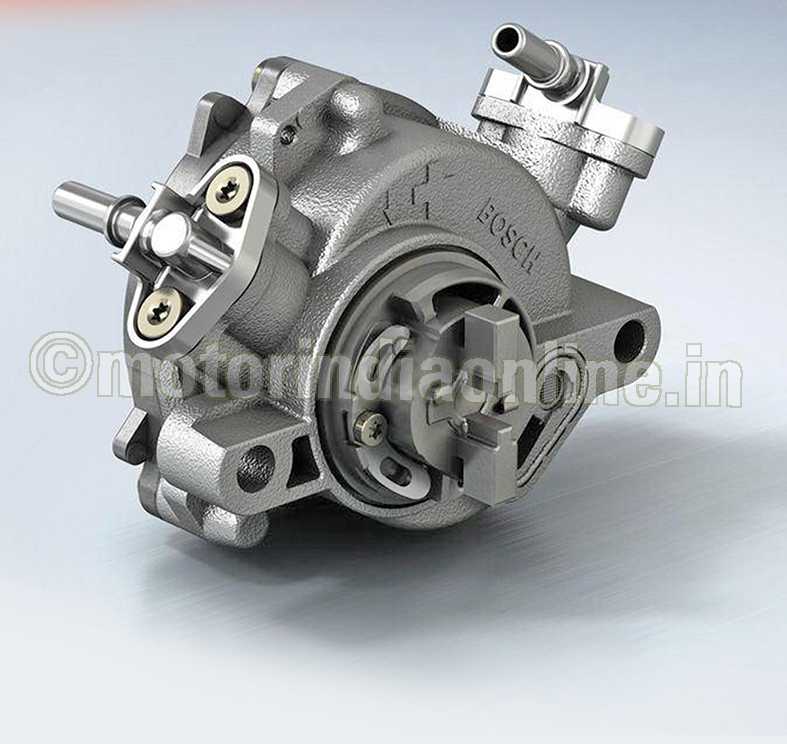With its EVOII mechanical vacuum pump, Bosch has shown that conventional components still have considerable development potential. The company has made the economical mechanical pump lighter and much more efficient, putting it on a par with supposedly more efficient yet far more expensive electric vacuum pumps.
The Bosch EVOII offers the best value for money on the market and reliably provides the vacuum for the brake booster. Costing up to 75 per cent less than comparable electric pumps, this new generation product is the ideal solution for modern gasoline and diesel engines. With CO2 emissions of less than 0.4 grams per kilometre, this pump performs just as well as its electric competitors. In addition, the extremely robust unit is contained within the engine compartment so the driver hears nothing.
To realize this achievement, Bosch took its tried-and-tested pump, of which it has manufactured 45 million units to date, and revised it from the ground up. This new generation is 300 grams lighter than other mechanical vacuum pumps, and more than a kilogram lighter than electric ones. The difference is the thermoplastic rotor: its stable blades can create the necessary vacuum, while overall the unit weighs very little.
The functional principle of the mechanical vacuum pump has been firmly established for diesel engines for a long time. In recent years, there has also been a growing need for vacuum in modern gasoline engines due to the spread of gasoline direct injection, which, in combination with engine downsizing, reduces fuel consumption by up to 15 per cent.
As of 2013, some 40 per cent of all new cars in Europe had direct fuel injection. Modern direct fuel injection systems need an additional pump, since the vacuum can no longer be controlled by the throttle valve.
The EVOII vacuum pump shows that even as Bosch works on large-scale trends, the company also places value on improving individual components. “With the EVOII, we reexamined an established product and refined every detail,” says Alessandro Fauda, head of development for the mechanical vacuum pump. As a consequence, the product is designed in such a way that it provides the necessary amount of vacuum while still creating the least amount of friction of any product on the market.
The efficient design of housing and rotating elements is the result of intensive simulations and calculations. By changing certain parameters, Bosch is able to find the best solution for every engine application.
Another feature of the new generation of vacuum pumps is that they can be tailored to each customer and engine application. Depending on customer requirements, the Bosch vacuum pump can be driven by the crank or camshaft, a gear or a chain. It can also be integrated with an oil or a fuel pump.
